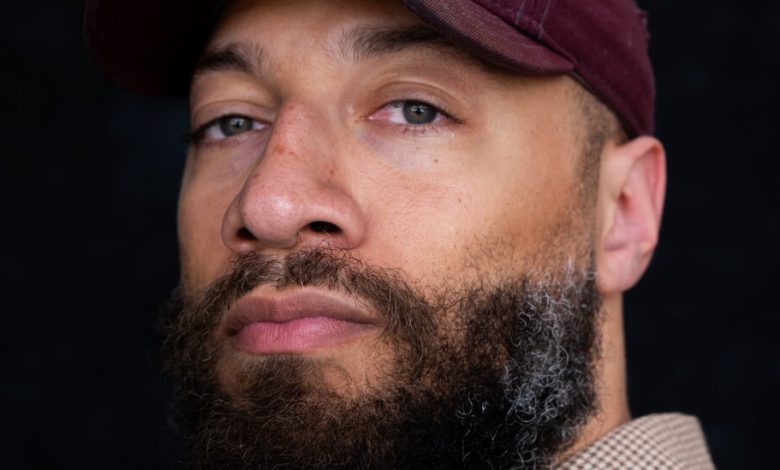Women Have Gotten ‘Too Mouthy,’ Says This Republican Senate Candidate

Royce White, a Black former pro basketball player who led protests in Minneapolis after the murder of George Floyd, made his first appearance on “The Alex Jones Show” about two years ago. As he spoke, it became clear that the deep suspicion of government authority that inspired him to march in the summer of 2020 had carried him into Jones’s paranoid orbit. “We all know when the time comes and authoritarianism is at its peak, the police and the troops who just take marching orders are going to be the ones forcibly vaccinating you and your kids,” he said. Jones, a purveyor of conspiracy theories about everything from 9/11 to the murder of children at Sandy Hook Elementary School, was thrilled by their conversation. “You’re awesome, you’re dead-on, and we’re going to learn a lot from you,” he enthused.
In the 2010s, White was known for fighting to get the N.B.A. to accommodate his generalized anxiety disorder, a public stand that won him journalistic admiration even as his athletic career faltered. (The Nation’s Dave Zirin called him a “mental health revolutionary” and compared him to Billie Jean King and Muhammad Ali.) Then in 2020 he was hailed as a rising civil rights activist. “Royce White Towers Above the Minneapolis Protests, and Thousands Are Looking Up to Him,” said a Washington Post headline. “If Donald Trump continues to threaten us with the military, this will continue to escalate,” White said on CNN, adding that people were “tired of tyranny.”
Yet White, distrustful of established power, also chafed under the constraints of what seemed to him like liberal orthodoxy. He was drawn, he told Jones, to “people who the establishment and the corporatocracy tried to silence, whether it be you, whether it be Minister Louis Farrakhan, whether it be a guy now like Robert Malone” — a major anti-vaccine influencer — “or a Steve Bannon.”
By 2023, White was not just appearing on Jones’s show but also guest-hosting it. Bannon, Trump’s first chief strategist, had become a mentor to him, delighting in his unvarnished machismo. “Women have become too mouthy,” White said on Bannon’s “War Room” podcast. “As the Black man in the room, I’ll say that.” Elsewhere, White denounced the “Jewish lobby” and the “Jewish elite” and called Israel “the linchpin of the new world order.” He described the L.G.B.T.Q. movement as “Luciferian” and wrote that it’s “the brainchild of radical feminists and their cucked men.” In 2020 he wrote in Tulsi Gabbard, then a Democratic congresswoman, for president, but is now fully behind Trump.
White’s evolution might seem familiar to those who’ve followed the journeys of onetime progressive icons like Naomi Wolf and Russell Brand into what Naomi Klein called, in her great book “Doppelganger,” the “mirror world” of the far right. More than anyone else, though, White demonstrates how that mirror world is consuming the Republican Party, because on Saturday, delegates at Minnesota’s Republican convention voted overwhelmingly to endorse him for Senate. Discussing his victory on his podcast, “Please, Call Me Crazy,” White thanked Jones and his Infowars website. “A lot of Infowars fans in the Republican Party delegation there on Saturday at the convention,” White said.
Even more central to White’s triumph was Bannon, who introduced him at the convention via video. After Trump lost the presidency in 2020, Bannon urged his listeners to seize control of the Republican Party by flooding it at the precinct level, and all over the country they responded in droves. “Suddenly, people who had never before showed interest in party politics started calling the local G.O.P. headquarters or crowding into county conventions, eager to enlist as precinct officers,” ProPublica reported in 2021. White’s endorsement looks like a fruit of that strategy.
